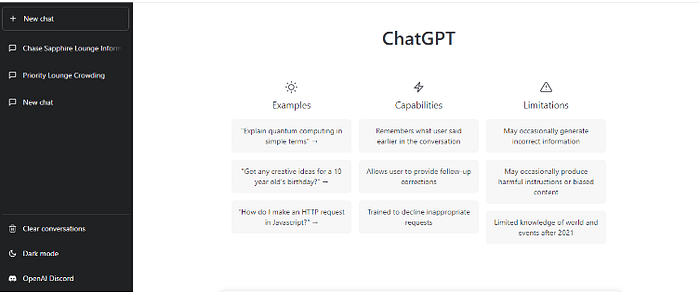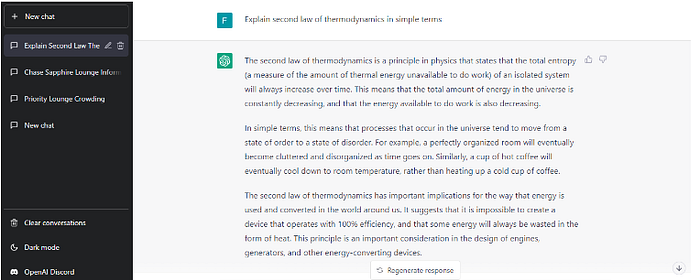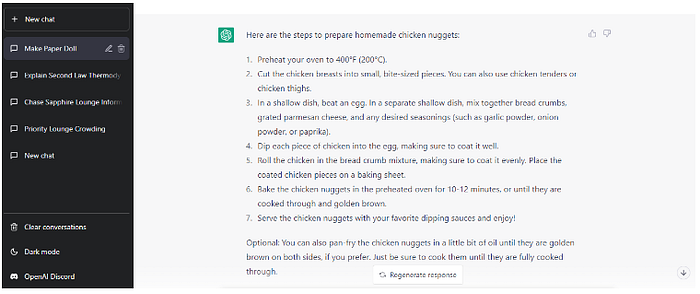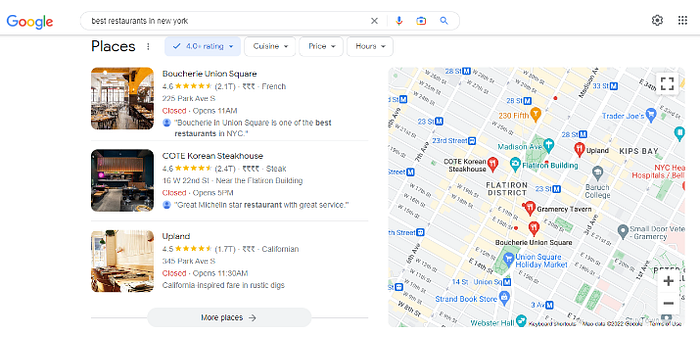It’s ChatGPT vs Google, and the world is on the verge of a paradigm-shifting technological revolution. ChatGPT has undeniably taken the world by storm. The Internet is lit with its extraordinary natural language processing capabilities and crisp responses. However, the AI chatbot from OpenAI has gained more notoriety as the ‘would-be Google killer.’ Some experts consider it the ultimate nemesis of Google — the unchallenged ruler of the online world.
Incidentally, the hype surrounding ChatGPT has raised existential issues for Google. After all, ChatGPT can provide detailed responses to complex questions instantly. ChatGPT has proven that conversational responses appeal more to users ( ChatGPT crossed 1 million users within the first week of its launch) than search-based queries.
This brings us to a critical question — Will ChatGPT replace Google? Let’s find the answer with a side-by-side comparison of Chat GPT vs Google.
ChatGPT vs Google: Key Points
· ChatGPT is the latest innovation from OpenAI, a San Francisco-based research firm deep into artificial intelligence and its real-life applications.
· ChatGPT has garnered unprecedented attention. It crossed 1 million users within one week of its release in November this year.
· It takes text prompts and generates human-like responses to the queries.
· ChatGPT serves a similar purpose as Google, but both platforms are inherently different.
· ChatGPT is an AI bot that excels in natural language processing and human-like response. Conversely, Google is a search engine that fetches information relevant to a query from billions of web pages.
What Is Chat GPT?
Back in 2021, Sam Altman, the CEO of Open AI, said, “working at OpenAI reminds me every day of the magnitude of the socio-economic changes that are going to happen faster than most people think. Software that can think and learn will increasingly do the work that people do today.”
He warned of a technological Tsunami, and here it is — ChatGPT.
ChatGPT is an AI-powered chatbot trained over the latest GPT 3.5 model or the Generative Pre-Trained Transformer — OpenAI’s Generative Text Artificial Intelligence model. In short, ChatGPT exploits deep NLP and machine-learning techniques to provide human-like responses.

The dexterity of ChatGPT lies in its dialogue-based interactions. Just give any text prompts to ChatGPT, and it instantly generates a human-like answer to the query. Incidentally, the new AI Chatbot, freely available to the public since November, can answer almost any question users ask. Besides, it can generate code snippets, write poetry, screenplay, story, and even scientific essays.
ChatGPT vs Google — How Do They Compare With Each Other?
On the surface, ChatGPT and Google appear to serve the same purpose — answer users’ queries — but both have different approaches. ChatGPT follows a radical course of dialogue-based, human-like interaction. In contrast, Google tracks the traditional route — take the query, compare it with billions of web pages and present the most relevant results. Then why is ChatGPT being projected as the Google killer? Let’s find the answer.
1. Advantages and Limitations Of ChatGPT Compared To Google
Since ChatGPT is the one that is doing all the disruption, let’s take a look at the capabilities and advantages of ChatGPT first;
Advantages
ChatGPT lists its capabilities and limitations on the interface, which is convenient to get the gist of, but we will go into more details.
The primary appeal of ChatGPT is its human-like response. It’s like talking to an actual expert.
Let’s take an example: ‘Explain the second law of thermodynamics in simple terms.

Hailing from a science background, I can say the answer is concise and structured.
Another advantage of ChatGPT is the precise nature of the responses.
ChatGPT replies to prompts in the most concise manner. You get the answer in the least words possible.
For example, when I ask the steps to prepare chicken nuggets at home, here’s the response I received;
ChatGPT offers steps from start to finish with no fluff. The condensed nature of the information that ChatGPT provides is particularly appealing.

Code debugging is also a glittering feature of ChatGPT that is hard to overlook
I mean searching for code snippets is one thing but getting actual code written is altogether a different level. It is awe-inspiring and certainly outdoes Google.

Let’s take an example of code debugging. I asked ChatGPT to correct a code that adds two numbers on python.
Here’s the response;
ChatGPT not only corrects the code but also explains the error. Ingenious, to say the least. No such capability in Google.
ChatGPT can double up as a virtual assistant
You can ask it to draft a contract, write a poem, compile a travel itinerary and offer gift ideas. Google doesn’t work this way, therefore ChatGPT has an upper hand here too.
ChatGPT can adjust responses based on a slight variation in the text prompts
ChatGPT is adept at understanding the context and adjusting its response. You can tweak the question to get a different reply.
Limitations
ChatGPT is intuitive, but it has limitations and some with much more severe implications. Let’s take a look at them;
One major downside of ChatGPT is that it’s limited by the data
ChatGPT does not have knowledge of just about anything. It is trained on a data model which is limited to 2021. It means ChatGPT has no idea about what conspired in 2022.
ChatGPT has serious accuracy issues.
It means the information it provides cannot be assumed to be accurate. The implications of these limitations are far outreaching; therefore, I have dedicated a whole section on this later in the article.
ChatGPT cannot access the Internet
ChatGPT cannot compare one piece of information with another more complete or latest one because it cannot access the Internet. Therefore, ChatGPT is limited in knowledge. It can only access what has been fed to it during the training process.
ChatGPT sometimes lacks variation in the provided replies
Let’s say you are unsatisfied with the response and want a different reply, or you slightly adjust the query to seek a different answer. However, it happens that ChatGPT comes with the same answer — no new information.
ChatGPT won’t be free forever?
ChatGPT is available for free for now, but sooner or later, Open AI will monetize it. After all, it takes enormous resources to generate answers for the text prompts. When Elon Musk asked about it, Altman, OpenAI’s CEO, replied that each prompt cost around a cent.
2. Advantages And Limitations Of Google Compared To ChatGPT
Google was a revolution during the early days of search engines, which is why it evolved as an authority in the internet realm. Let’s explore the advantages and limitations of Google and compare them to ChatGPT
Advantages
Google has a massive database with all the latest information.
Google has over a hundred billion web pages indexed in its database. With such a massive database, Google can provide the most relevant results in split seconds. That’s not the case with ChatGPT. It offers precise answers but is limited by its knowledge.
Google offers you multiple avenues to seek the most suitable answer
Google, in most cases, doesn’t answer you in YES or NO. Instead, it focuses on relevance and provides results that it finds most relevant to the search query. Users have multiple avenues to seek, compare and verify the information.

Google is capable of offering real-time information
Unlike ChatGPT, Google can provide real-time information. You can search trains and flight schedules, delays, the fastest route, real-time traffic status, and more.

Google particularly excels in offering personalized results
Google can offer you results based on your past choices, locations, preferences, and more. You can ask Google for gift ideas, which will provide you with the details alongside user reviews, the best sites to buy a particular product, the nearest store where the items will be available, and multiple other suggestions based on your choice. In short, a more comprehensive answer that ChatGPT still can’t rival.
Google is Free
The primary revenue source for Google is ads. But there’s no subscription model to avail of its service. You don’t have to pay a dime to extract information from Google. That’s not the case with ChatGPT — it’s free for now but won’t be in the future.
Limitations
Google is a search engine and doesn’t have the same language processing capabilities as ChatGPT
As I told you earlier, the primary attraction of ChatGPT is its human-like interactions. Google doesn’t give you a single answer; instead, it presents you with different results and leaves it to users to find the most accurate answer. In contrast, ChatGPT provides a thorough and crisp response to your question in a human-like language.
Google doesn’t act as an AI-powered virtual assistant
You cannot instruct Google to draft a story. Sure it can tell you the steps to write a good story, all elements needed to make it catchy and appealing, but you have to do it yourself. In ChatGPT, a few texts will be enough to get a working story.
3. Chat GPT Vs Google: Working
One helpful way to discern the differences between ChatGPT and Google is to understand their work. Their inherent working will also eventually play a huge part in determining which platform will triumph.
How Does ChatGPT work?
Chat GPT exploits the GPT 3.5 modules. These modules are trained over an extensive amount of data from the internet. Azure AI supercomputers were used for the training. Besides, OpenAI also employs a unique Reinforcement Learning technique utilizing human feedback. It means that human trainers also contributed to the training of ChatGPT apart from a large data set. The ChatGPT system is designed to produce contextually appropriate responses. Besides, the AI bot focuses explicitly on ease of use; therefore, it answers instantly, admits mistakes, and denies inappropriate queries.
How Google Works?
Google is a search engine and is radically different from ChatGPT. It scans the internet looking for URLs — the process referred to as crawling. Next, it indexes the data in its database to fetch when asked. And lastly, it provides the most relevant information based on the search query. Google ranks websites based on the relevance of content based on a particular keyword. When a user enters a query, Google matches it with billions of web pages and offers results in a successive order based on the relevance of their content.
Winner — No winner here, both ChatGPT and Google aim to resolve users’ queries but have different approaches to it.
4. Chat GPT vs Google — Usability
The entire premise of ChatGPT is based on ease of use, which reflects in its functionality. A simple text prompt will return a clear and comprehensive answer. If we take the example of writing or debugging a code, ChatGPT does it with relative ease. Besides, it explains the process too for clearing the code further. Google, on the other hand, just fetches results. It’s on users to visit the ranking web pages and search for what they
Share on:
